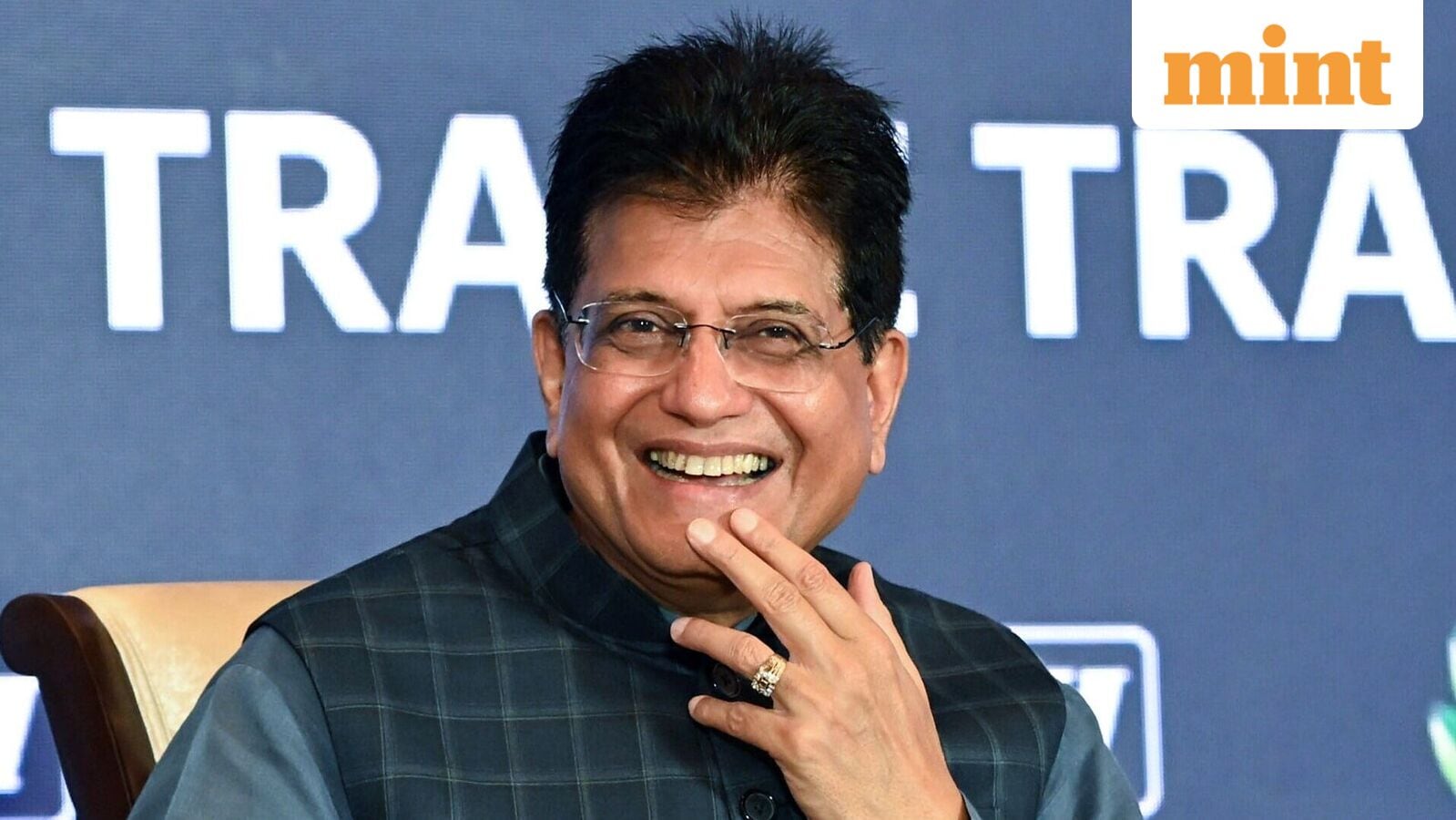New Delhi: With export diversification at the top of India’s trade agenda, commerce and industry minister Piyush Goyal is set to embark on a three-nation tour in October—Singapore, Qatar and South Africa—to push Indian goods into new markets and also advance talks on the long-pending India–European Union (EU) free trade agreement on the sidelines, two senior government officials said.
Goyal will travel to Singapore in the first week of the month, followed by Qatar, and then South Africa for the G20 trade ministers’ meeting.
On the sidelines of the G20 meeting, the minister is expected to meet EU’s trade commissioner Maroš Šefčovič to take forward the discussions on the FTA, said the first official cited above.
The push on the diplomatic front comes as India’s negotiating team prepares to travel to Brussels from 6 October to 10 October for the next round of talks on the FTA.
The officials said the Brussels round will focus on closing the gaps in tariff schedules and services access, as both sides aim to conclude the pact this year. The deal is expected to give Indian exporters greater access to the European market, while opening opportunities for EU companies in India’s fast-growing economy.
India and the EU had resumed negotiations in June 2022 after nearly a decade-long pause, seeking to craft what both sides have described as a “comprehensive and balanced” agreement.
As per commerce ministry data, India’s exports to the 27-nation bloc were at $83.79 billion, imports at $84.44 billion, and the total bilateral trade at $168.23 billion in FY25. In FY24, the numbers were higher, with exports at $85.90 billion, imports at $87.35 billion in FY24, and the total trade at $173.25 billion.
For India, securing deeper access for textiles, leather, engineering goods, and agriculture exports is a key priority, while the EU has sought tariff reductions for its wines, spirits, automobiles, and high-value machinery.
“With the US market becoming more unpredictable and Asian supply chains undergoing stress, the EU deal offers India a chance to consolidate its position in one of the largest and most stable consumer markets,” said Biswajit Dhar, a former professor at Jawaharlal Nehru University.
“The pact will also seek to ease procedural hurdles faced by exporters and importers on both sides. India has pressed strongly for greater mobility of professionals in IT, nursing, and other skilled sectors, arguing that services must be given equal weight alongside goods,” said the second official cited above.
The EU has been pushing for sustainability-linked commitments, including labour and environmental standards under its Green Deal framework.
Mint had reported on 8 September that the government has planned a series of ministerial visits to trusted trade partner nations, including Singapore. Singapore has already shown interest in importing Indian eggs and poultry, and discussions are underway to permit the entry of Indian fish.
The ongoing geopolitical tensions and US tariff-related disruptions in supply chains has added momentum to negotiations on free trade agreements. Amid global trade realignments, both India and the EU are keen to insulate their economies with reliable partnerships.
Amid its hurdle-riddled talks for a bilateral trade pact with the US, for India, a deal with the EU could signal its ability to finalize ambitious trade pacts after recent successes with the United Arab Emirates and Australia.
